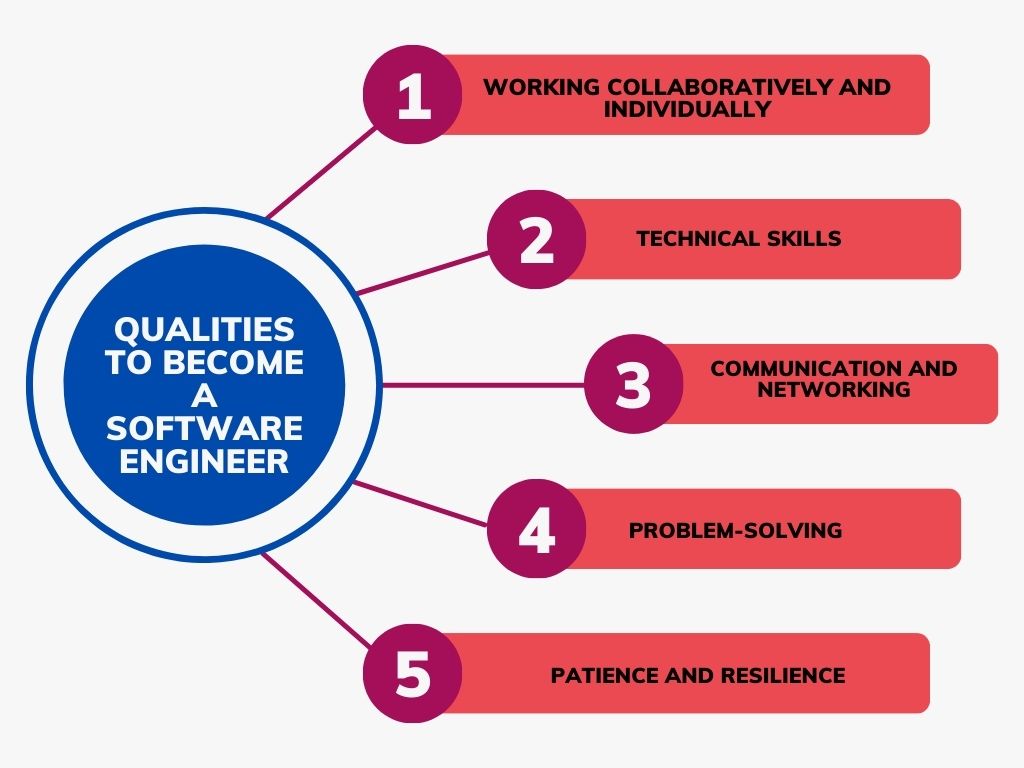Is Master in Software Engineering Good – Boost Your Earning Potential!
Yes, a Master’s in Software Engineering boosts skills and earnings but requires time, cost, and commitment.
Let’s explore the benefits, career opportunities, and potential challenges to help you decide if this advanced degree is right for you.
Table of Contents
Why Pursue a Master’s in Software Engineering:

Enhanced Knowledge and Skill Set:
A Master’s degree in Software Engineering offers an in-depth understanding of advanced topics like artificial intelligence (AI), machine learning (ML), data science, cybersecurity, and cloud computing.
These specialized skills are highly valued in the tech industry and can set you apart from your peers in the job market. Whether you’re interested in software development, systems architecture, or IT management, this program can help you gain expertise that is critical for leadership roles.
Higher Earning Potential:
One of the most compelling reasons to pursue a Master’s in Software Engineering is the potential for higher salaries.
According to various salary surveys, individuals with a Master’s degree in the field often earn more than those with only a Bachelor’s degree. While salaries vary based on location, experience, and specific job roles, a Master’s can significantly increase your earning potential over time.
Career Advancement:
For those already working in the tech industry, a Master’s degree can open doors to advanced roles such as software architect, IT manager, or technical director.
This advanced qualification can also make you a more competitive candidate for senior positions. Moreover, some companies may require or prefer candidates with a Master’s degree for leadership roles, making it a valuable asset for career growth.
Access to Cutting-Edge Technologies:
As a software engineer, staying updated on the latest technologies is crucial. A Master’s program often provides access to the newest advancements in the field, such as blockchain technology, quantum computing, and the Internet of Things (IoT).
This exposure allows you to build a strong foundation in emerging areas of software engineering, positioning you for future tech innovations.
What Careers Can You Pursue with a Master in Software Engineering:
A Master’s degree in Software Engineering opens up a wide range of career paths. Some of the most popular options include:
- Software Engineer/Developer: Build applications, develop systems, and solve technical problems.
- Software Architect: Design and manage software systems, ensuring scalability, reliability, and performance.
- Data Scientist/Analyst: Analyze large datasets and provide actionable insights using machine learning and statistical methods.
- Cybersecurity Engineer: Protect systems and networks from cyber threats through secure software design and testing.
- IT Project Manager: Oversee software development projects, ensuring they meet deadlines, budgets, and quality standards.
Benefits of a Master’s in Software Engineering:
Specialized Expertise:
A Master’s program goes beyond basic coding skills and focuses on specialized areas like system design, software testing, and project management. This expertise can help you tackle complex problems and take on leadership roles in high-impact projects.
Networking Opportunities:
Graduate programs offer opportunities to connect with professionals, professors, and peers in the industry. Building a solid network of contacts can be invaluable when seeking job opportunities or collaborations in the future.
Personal and Professional Growth:
Pursuing a Master’s degree requires dedication, critical thinking, and problem-solving skills. This process can significantly enhance your personal and professional growth, shaping you into a more well-rounded individual and a better software engineer.
Career Advancement:
A Master’s in Software Engineering opens doors to higher-level roles such as software architect, IT manager, or technical director. It provides the skills necessary for leadership positions and can make you a more competitive candidate in the job market.
Access to Cutting-Edge Technologies:
Master’s programs often expose students to the latest trends in technology, including AI, machine learning, and cybersecurity. This exposure allows you to stay ahead in a fast-evolving field and work on innovative projects that shape the future of tech.
Higher Earning Potential:
Graduates with a Master’s in Software Engineering typically earn higher salaries compared to those with only a Bachelor’s degree. The specialized skills learned in the program are highly valued, leading to better-paying job opportunities in both established companies and startups.
Job Security and Demand:
The tech industry continues to grow rapidly, and specialized software engineers are in high demand. Completing a Master’s degree positions you for long-term job security, as companies seek qualified professionals to develop and maintain complex software systems.
Flexibility in Career Paths:
A Master’s in Software Engineering offers a broad range of career possibilities. From software development to data analysis, cybersecurity, and even entrepreneurship, this qualification provides you with the flexibility to pursue various career paths based on your interests and expertise.
Read More: How to Become a Software Engineer
Potential Challenges of Pursuing a Master’s in Software Engineering:
Cost and Time Commitment:
The cost of graduate programs can be substantial, and the time commitment is no small feat either. Most Master’s programs take 1 to 2 years to complete, which can be demanding, especially if you plan to work simultaneously. It’s important to assess whether the potential career benefits outweigh the costs and time required.
Not Always Necessary for Career Growth:
While a Master’s can certainly enhance your career prospects, it’s not always a requirement. Many software engineers have successful careers with just a Bachelor’s degree, depending on their experience and skills.
Work-Life Balance:
Balancing the demands of coursework, projects, and possibly a part-time job can be stressful. It’s important to consider whether you’re ready to invest the necessary time and effort to succeed in a Master’s program while maintaining a healthy work-life balance.
FAQs:
1.Is a Master’s in Software Engineering worth it?
Yes, it can enhance your knowledge, career opportunities, and earning potential in the tech industry.
2.How long does it take to complete a Master’s in Software Engineering?
Typically, a Master’s in Software Engineering takes 1 to 2 years to complete, depending on the program.
3.Can I advance my career without a Master’s degree in Software Engineering?
Yes, many software engineers succeed with a Bachelor’s degree, depending on experience and skills.
4.What jobs can I get with a Master’s in Software Engineering?
You can pursue roles like software engineer, software architect, data scientist, cybersecurity engineer, and IT project manager.
5.Is a Master’s in Software Engineering expensive?
Yes, graduate programs can be costly, but the long-term benefits, such as higher salaries, can offset the investment.
Conclusion:
A Master’s in Software Engineering can be a great investment for those looking to advance their careers, gain specialized knowledge, and earn a higher salary. However, it’s essential to weigh the costs, time commitment, and whether the degree aligns with your long-term goals. If you’re passionate about software engineering and eager to dive deeper into the field, this program can provide the tools you need to excel in the tech industry.
Related Articles:
- Read More: iCUE Software
- Read More: What Is The Suggested First Step For Entering Software Development
- Read More: How Useful is Master in Software Engineering






